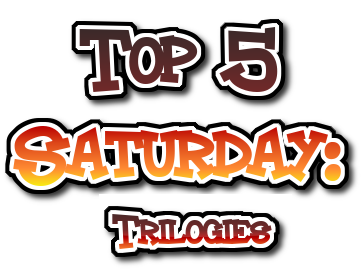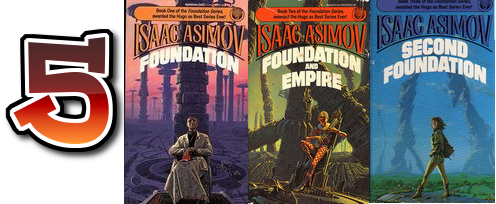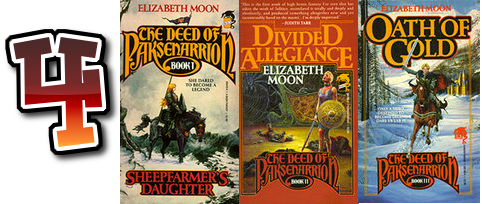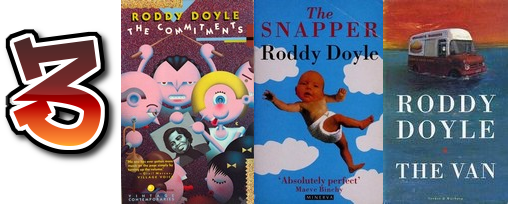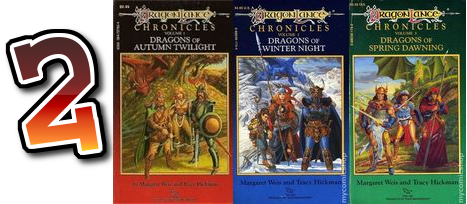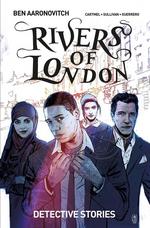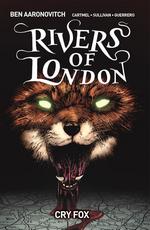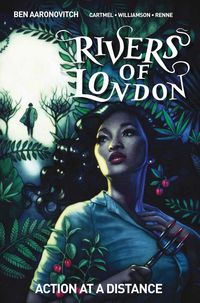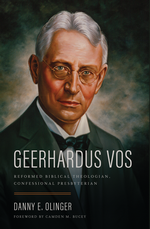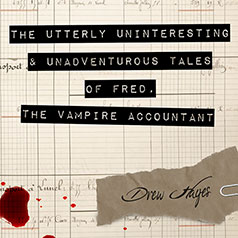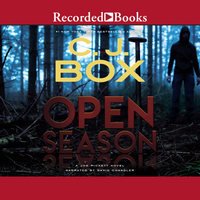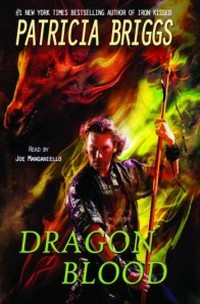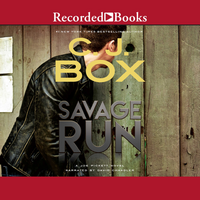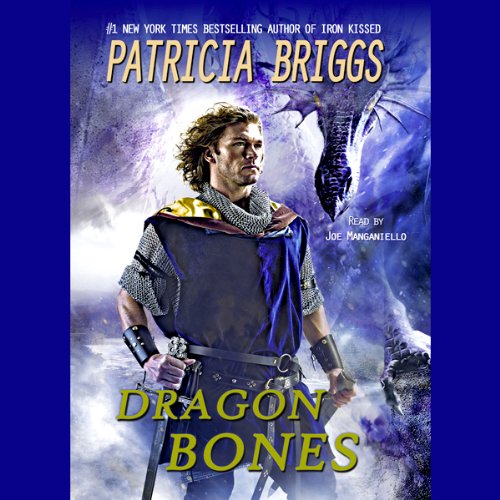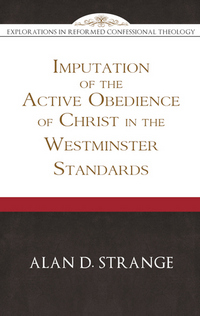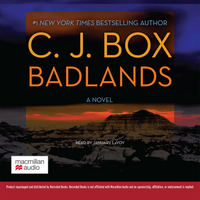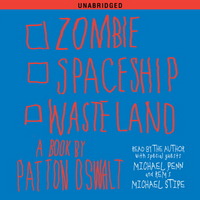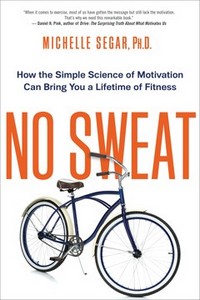Tag: Science Fiction Page 15 of 34
Oh, wow…hard to believe it’s been almost 4 years since we did this for Thursday, 1:17 PM! Apparently, he’s used the time very well. I had many, many questions I’d like to ask about The In Between, but they’d require hours of both of us (and would probably eliminate the need for anyone who read this to listen to the book)— so, I’ll limit myself to these.
| How is the process different for you in preparing something for an Audible Original rather than print? | ||
|
||
| What part of this novel came first? The teleportation technology (and/or the problems with it), the world, the characters? And then how did you go about adding the rest? | ||
|
||
| Why Tokyo? I get Omaha, but what was it that made Tokyo the destination for the family? (I have theories, e.g. the opportunity to write off a trip to Japan on your taxes, but I’d rather hear from you) | ||
|
||
| When self-driving cars become the norm, are you going to be one insisting on manual control? | ||
|
||
| (I’d pay to read a copy of that story…)
So how awesome are Brittany Pressley and Mark Boyett as narrators? (there’s a softball for you) |
||
|
||
| (I want the record to show that I hadn’t read these responses when I wrote my post about the book, I didn’t steal this phrase from him. But glad to see I’m not alone in thinking it.)
Thanks for your time and willingness to let me badger you with these questions–I really enjoyed The In Between and truly hope that it finds the audience it deserves. |

A quick Q&A with the author, Michael Landweber, is coming later this morning—be sure to come back and check it out!
—
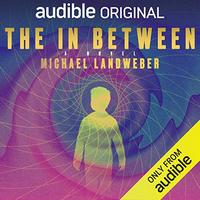 |
The In Betweenby Michael Landweber, Brittany Pressley (Narrator), Mark Boyett (Narrator) Unabridged Audiobook, 10 hrs., 7 min. Read: February 28-March 3, 2020 |

A couple of years ago, when mystery writer Brad Parks wrote his first stand-alone thriller, in more than a couple of interviews I heard/read him talk about the struggle getting going. A friend gave him some advice to “write the book that scares you,” which would likely scare his readers. He ended up deciding that as a parent, the thing that scared him the most was something involving trauma to one of his kids. Which resulted in at least two different novels (Say Nothing and Closer than You Know), both of which provided me with a level of fear I don’t usually get from thrillers. I couldn’t stop thinking about that anecdote and those two books while I listened to this, did someone give Landweber similar advice?
We start off meeting Lillian, who works in the PR department of Teleportation Services International. She’s taking her son’s class on a tour of TSI—something she and his teacher had arranged to help him deal with his anxiety about their upcoming trip via Teleportation. Cole is shy, nervous, and not really assured by this exercise—although the rest of his class has a blast (and it sounded pretty fun to me, too).
Then we meet her husband, Jackson. Jackson is one of the few drivers around in 2047—his clientele is primarily made up of the elderly who won’t trust self-driving cars (and, yeah, it occurred to me that I’d be one of his client base on both of those counts) and those whose mental health or anxiety issues won’t allow them to trust the cars, either. He augments this income by teaching super-rich teens how to drive the smattering of sports cars still around so they can go on joyrides.
TSI gives one employee’s family a month a free week’s vacation to anywhere in the world—and then milks their experience for publicity. They’ve picked Tokyo—and none of the family have ever teleported before. This will be a new experience for them all. Lillian steps through the portal in Omaha and stumbles out in Tokyo (the first trip is typically difficult on the destination side). There’s a strange delay that worries her, but before long, Jackson comes out in worse shape than her. But where’s Cole?
No one has an answer. Cole is missing and no one has an explanation. No one can even begin to hazard a guess about what happened.
Not at all surprisingly, Lillian and Jackson are devastated. Heartbroken. Inconsolable. And their individual reactions are so different that they can’t even be there for each other in this time.
Lillian, whose own childhood was marked by tragedy, directs her grief into work. If she can be busy, she can cope. Quickly, her energies are directed into investigating (on her own) what happened that day, and what can be done to prevent it from happening again—and maybe finding a little vengeance along the way.
Jackson’s reaction is two-fold. First, he’s an alcoholic who hasn’t taken a drink in six years. He’s not in recovery in any sense, he just stopped drinking to be a father. With Cole gone, he returns to the bottle—any bottle. Before taking that first drink—and after it—his question was, “My son is missing, why isn’t anyone looking for him?” For Jackson, Cole isn’t dead, he’s lost. Jackson knows—he can’t convince anyone, but he knows—that he saw something—some place?—in between Omaha and Tokyo. He spends his days going back and forth between the two cities, trying to find that In Between again, before crawling back into a bottle.
They haven’t just lost their son, they’ve lost each other. The love is still there. But they just don’t understand the other’s reaction. She can’t cope with his drinking or his denial. He can’t understand why she’s given up on Cole. While he hunts for Cole and she hunts for an explanation, they’re both burdened, distracted and shaped by this other pain. It is heartbreaking to watch their marriage crumble—as with the Parks thrillers, what happens to Cole is terrifying to this parent. But that feeling was frequently overshadowed by my reaction to his parent’s relationship.
Now that I’ve gone on longer than I intended to about the plot (not that I’m cutting any of it), let’s talk about the setting. This is not quite a post-apocalyptic world, but it’s one where the apocalypse could be just around the corner. Environmental changes have impacted coastal cities around the world—many of what we know as coastal cities no longer exist. We all know that the Midwest gets hit by huge storms throughout the year, their frequency and intensity have grown. There are changes to transportation (air travel as well as the automobile changes mentioned above) in efforts to reduce pollution. New–and deadly–flu strains crop up with a regularity that makes them seem routine, and everyone knows how to react when one comes along.
There’s a lot that could be said about the government (governments?) in this future. Not that Landweber talks about politics at all—but there’s a tremendous lack of civil liberties on the one hand, and yet a very laissez-faire stance when it comes to TSI (at least as evidenced by TSI who really only seem to care about customer perception, not any kind of reulatory oversight). There’s a benevolent totalitarianism at work when it comes to the storms (and reactions to them) in Nebraska, as well as the medical response to new flu strains.
I want to stress here that these environmental and health elements are just parts of the story, and the government observations are only my impressions, and nothing I could really provide footnotes about. Landweber doesn’t take the opportunity to get on a soapbox about any of it, they’re just part of the world he’s describing. Much in the same way that someone writing a book set in 2020 would talk about current cultural trends, technologies or current events. He doesn’t indulge in any real explanation of his world-building, there are no big info dumps—it’s all just the setting.
This is an Audible Original—and I should talk about the audio aspect of this. It’s a gripping listen and wonderfully performed. As you may have guessed Brittany Pressley narrates the chapters from Lillian’s point of view, and Mark Boyett takes Jackson’s. I don’t think I’d heard anything by either of them before—but I’ll keep my eyes peeled for their names when I browse for audiobooks in the future. They truly did wonderful jobs. They got the emotion of the moment, the tension—and occasional moments of fun, joy, or relief—as well as giving a real sense of the characters. It didn’t happen often, but even when a character usually only seen in a Lillian chapter showed up in a Jackson, you could recognize them (and vice versa)—which was nice. Landweber wrote a great story but Boyett and Pressley brought it to life.
The last time I listened to an Audible Original, I had trouble with a couple of the SF-y terms used—mostly because I couldn’t be sure exactly what the narrator was saying (e.g., was that a “d” or a “b”—or a “g”—in the middle of that word?) It wasn’t that I couldn’t understand the narrator, they were just terms the author invented that was hard to get my head around. Landweber didn’t do any of that, which was a relief—although there were a couple of Japanese names I wouldn’t be able to repeat (in print or voice), but I knew what Pressley and Boyett were saying.
Another pair of books that came to mind while I was listening to this were Mike Chen’s novels. Like Chen, Landweber creates a wonderful Science Fiction world, and then tells a gripping family drama. Yes, the science fiction elements are there—and are incredibly well-executed—but the heart of this novel is about parenting, marriage, love. Fans of Chen would do well to check this book out. Fans of this book should give Chen a chance.
I read and enjoyed Landweber’s last novel, Thursday, 1:17 PM, but this is a much better showcase for his talents (not to knock his earlier work). There’s so much to commend about this Audiobook that I have only begun to scratch the surface (truly, I can think of a half-dozen characters I should’ve profiled*, a couple of themes I could have talked about, and other plotlines I should have addressed). There’s something for everyone in this book—an element of a thriller, some great SF Technology, some conspiracy elements, the environmental setting, some media commentary, some Big Business critique, a lot of focus on people with anxiety issues and/or mental health diagnosis, ethical quandaries, parent/child stories, and a touching love story, too.
* There’s a hacker character that I’m going to kick myself for not talking about, for example. He’s one of the most entertaining characters I’ve encountered this year—Top 3 for 2020.
Get this into your ears, folks, you won’t regret it—you may not like it as much as I did, but I can’t imagine you won’t like it.
Disclaimer: I received this audiobook from Audible in exchange for this post and my honest opinion. Thanks to them for the book and Laura Blackman for approaching me.

![]()
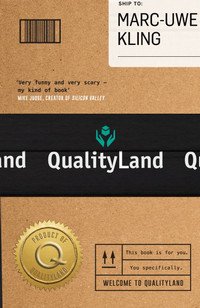 |
QualityLandby Marc-Uwe Kling, Jamie Lee Searle (Translator) eARC, 352 pg. Read: February 13-15, 2020 |

When you boil it down, QualityLand is simply the epic tale of a man trying to return something he didn’t order (and doesn’t want) to an online retailer. Peter Jobless’s tale involves a paranoid hacker, a blackmail scheme, an armed stand-off, a smitten sex-bot, a TV news panel show, a revolutionary tablet computer, swaying a presidential election, and a revival of interest in the films of Jennifer Aniston. We’ve all been there, right?
There’s no way I could describe the plot in a way to do it justice—so we’ll stick with the broad sweep. Before much gets underway story-wise, there’s a lot of set up required. When the dominoes start to fall in earnest, they go quickly. But so much of the book is devoted to setting them up, establishing/explaining the culture, government and everyday life of the QualityLand’s citizenry.
Here’s the best part about the set-up time: it’s totally worth it, and the way the dominoes are being placed is enjoyable/entertaining enough that even if the results were duds, I wouldn’t really have minded all that much. The icing on the cake is that the plot works well (we’ve all seen too many examples of elaborate worldbuilding that accompany a story that’s not worth it).
This is a world given over to algorithms, a world where the algorithms of various retail entities know so much about their customers that they no longer have to wait for a customer to order something to provide it—no, the algorithm will know what you’re going to want and will deliver it before you know you want it.
Not only are all your possessions provided for you in this manner, the algorithm decides what kind of career you will pursue, but it will also guide and govern your romantic life, your health care, and so on and so on.
It even gets into politics—so much so that during the course of this novel, there is an android running for president—because, we’re told repeatedly (mostly by the candidate), “machines don’t make mistakes.” An android chief of state (the theory goes) will better all of society because the android will know what’s needed.
At each step of the way, as each aspect of society is introduced and explained, as each character appears for the first time, it’s done in a way that will make you grin, chuckle, or laugh. The world is so zany, so…out there—and yet, completely recognizable as a natural progression of our world/society/culture.
Unlike so many satirical novels, the ending of this novel doesn’t get out of control. The plotlines come to natural conclusions and resolve in a satisfying way.
The characters—from the Everyman Peter Jobless, to the campaign manager (she can give Malcolm Tucker some lessons on the use of words as weapons), to the history teacher’s trouble-maker daughter (in-person to public officials or in online comments), to Peter’s collection of electronic companions—are wonderful. They’re a little better rounded than I’m used to in satires.
There’s a wonderful playful quality to the language, making the whole thing a barrelful of fun. I’m assuming that Searle captured the feel of the original in that, and did a great job. There’s an acronym that’s used a couple of times, that I think may be funny in the original, but doesn’t translate into anything (at least as far as I can see). That one thing aside, the ability to make a translated text feel so natural, so easy is no small feat.
QualityLand is a fun read t’s a thought-provoking read, it is (occasionally) a frightening read as you realize how close to this dystopia we are (and how fast we’re running to it). I strongly recommend this one.


My thanks to Tracy Fenton and Compulsive Readers for the invitation to participate in this tour and the materials (including a copy of the novel) provided.
This post contains an affiliate link. If you purchase from it, I will get a small commission at no additional cost to you. As always, opinions are my own.
I’m excited to welcome the Book Tour for QualityLand by Marc-Uwe Kling this morning. I’ve got this little spotlight post and my take on the novel coming along in a bit. But let’s start by learning a little about this book, okay?
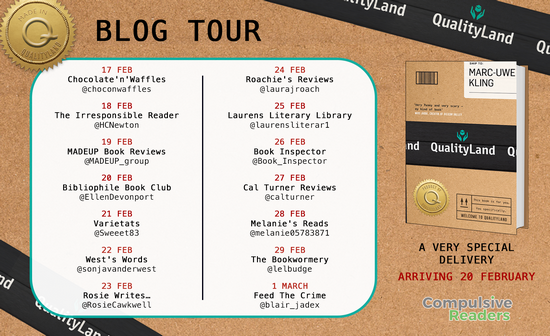

Book Details:
Book Title: QualityLand by Marc-Uwe Kling, Jamie Lee Searle (Translator)
Publisher: Orion
Release date: February 20, 2020
Format: Hardcover
Length: 352 pages
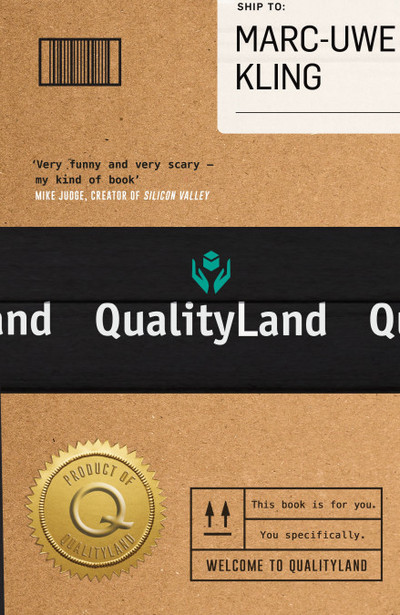
Book Blurb:
Everything in QualityLand is geared towards optimizing your life. QualityPartner identifies your ideal mate, earworm personal assistants get you where you need to go and android drones know you need a six pack of beer at the end of a long day even before you crave one. Humans, robots and algorithms co-exist, everything is seamlessly corporatised, stratified and monetized. Your very name reveals much of what we need to know about you and your profile discloses the rest.
Peter Jobless is a down and out metal press operator, dumped by his long term girlfriend when she is alerted to a better option on her QualityPad. But Peter has another problem – he seems to be the only one noticing that his fellow Qualityland robot citizens are experiencing an existential crisis. There is a drone who’s afraid to fly. A sex droid with erectile dysfunction. A combat robot with PTSD. Instructed to destroy these malfunctioning A.I., Peter starts to suspect the technology that rules us all has a flaw, perhaps a fatal one. Not only that, these robots might be his only friends…

About the Author:
 Marc-Uwe Kling is one of the most successful authors in Germany. His latest book QualityLand is an astounding satire of the future that sometimes feels closer to the present than you could wish for. QualityLand spent months on the German bestseller lists, has up to now been translated into twenty-four languages and the HBO is planning an adaptation with Mike Judge as show runner.
Marc-Uwe Kling is one of the most successful authors in Germany. His latest book QualityLand is an astounding satire of the future that sometimes feels closer to the present than you could wish for. QualityLand spent months on the German bestseller lists, has up to now been translated into twenty-four languages and the HBO is planning an adaptation with Mike Judge as show runner.

My thanks to Tracy Fenton and Compulsive Readers for the invitation to participate in this tour and the materials (including a copy of the novel) provided.
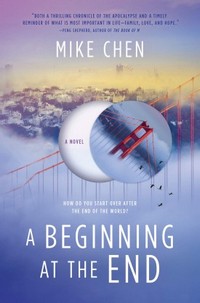 |
A Beginning At The Endby Mike Chen Hardcover, 391 pg. Read: January 28-February 4, 2020 |

“Mommy’s not coming home.”
“No! Mama now! Want Mama!” Desperation had taken over the child’s face, eyes pooling With the Whiplash turn of raw emotions. She tossed the plastic spoon across the prison-cell-turned-living-space, her voice ramping up in volume and intensity. His arms wrapped around his daughter, even though she punched at his thigh in frustration; he held her as if she was the last thing in the world.
Rob blinked as the realization came to him. She was.
His home, his old life was gone. His parents and brother, killed by MGS. Their friends, their community, scattered and ravaged. And now Elena gone too.
Sunny was all he had left.
Well, I really painted myself into a corner with my In Medias Res post about this book a couple of weeks ago. I’m not sure what else there is to say! Oops.
I was more right than I was wrong about where Chen was taking some of the story—but while I had the destination correct the route he took totally caught me off-guard (and it was so good!). The parts of the story I was wrong about, however. I could not have been further off the mark if I’d tried. Both of those results are so satisfying to me, Chen nailed the nuts and bolts bits of plotting—conclusions that seem right and expected (and earned) while being very unexpected.
While Chen knows how to plot a book, characters are his strength (see also Here and Now and Then).
I could absolutely see where Moira was coming from and understood (and applauded) what she did to change her life. I felt like I got Krista’s pain and the way she reacted to her mother and uncle made sense to me (I’m not sure she was fair to her college boyfriend, even if he should’ve known better than to do what he did). And Sunny should win over even the most jaded reader. But Rob? The way Chen wrote him made me empathize with Rob to a degree that I wasn’t prepared for. That sentence I quoted above, “She was,” just about broke me.
I assume that other readers will gravitate to other characters (and Moira is probably my favorite in the novel), and they should. But Rob is going to stick around in my subconscious for a while.
All of this happens against the backdrop of a world trying to recover from a global pandemic that wiped out an unimaginable number of people. Sure, other apocalyptic scenarios seem worse (zombies, whatever lead to Panem, the First-through-Fifth Waves, etc.)—but what makes this scenario chilling is just how possible it really seems. And I’m not just saying that with one of my sister’s kids dealing with being quarantined in Asia around the time I read this.
Nevertheless, Chen’s novel is optimistic. Human beings, human society, human families prevail. Like Dr. Ian Malcolm famously said, “Life, Uh, Finds a Way.” So does humanity in Chen’s world.
Like all good Science Fiction, this is more about our present than it is our future. In a survivor’s group, Rob has a lot to say about living in fear with the source of the past hanging over is and letting the two dictate our lives. Without trying I could think of a dozen ways that could be applied to pre-apocalyptic Americans (who knows how large the number would be with some effort).
There’s more I feel like I should say, if only just to flesh out some of what I’ve put down—but at this point, I think I’ve said enough about this book over the two posts, so I’m going to stop here (so much for that corner I painted myself into). I want to do 400-600 words on the title alone (many of which would be devoted to the indefinite article).
A Beginning at The End is the kind of SF that should appeal to SF readers. It’s the kind of SF that should make non-SF readers (including those antagonistic to genre fiction) think there’s something to the genre after all. Because this isn’t “just” a SF novel. It’s a novel about humans being very human, with hopes, fears, loves, joys, sorrows, failures, and successes—it just happens to be set in a post-apocalyptic future. Chen’s first novel was among the best I read in 2019. I fully expect that this will be among the best I read in 2020. I’m going to jump on whatever Chen has coming in 2021 without bothering to note the title or even skim the blurb. He’s earned an auto-read from me for at least the next two novels.

This post contains an affiliate link. If you purchase from it, I will get a small commission at no additional cost to you. As always, opinions are my own.![]()
As the title implies, I’m in the middle of this book, so this is not a review, just some thoughts mid-way through.
—–

A Beginning At The End
by Mike Chen
Book Blurb:
Six years after a global pandemic wiped out most of the planet’s population, the survivors are rebuilding the country, split between self-governing cities, hippie communes and wasteland gangs.
In postapocalyptic San Francisco, former pop star Moira has created a new identity to finally escape her past—until her domineering father launches a sweeping public search to track her down. Desperate for a fresh start herself, jaded event planner Krista navigates the world on behalf of those too traumatized to go outside, determined to help everyone move on—even if they don’t want to. Rob survived the catastrophe with his daughter, Sunny, but lost his wife. When strict government rules threaten to separate parent and child, Rob needs to prove himself worthy in the city’s eyes by connecting with people again.
Krista, Moira, Rob and Sunny are brought together by circumstance, and their lives begin to twine together. But when reports of another outbreak throw the fragile society into panic, the friends are forced to finally face everything that came before—and everything they still stand to lose. Because sometimes having one person is enough to keep the world going.
I’m a couple of chapters shy of the halfway point, but I’m pretty excited about this book and want to get something out there about it—also, I have to take a break because I forgot about a book tour I have next week, and I really should read that book first.
So, like last year’s Here and Now and Then, Chen uses SF trappings to tell the kind of story that you don’t normally associate with Science Fiction (especially if you’re an anti-genre fiction snob).
I’m a chapter or two past a Speed Dating scene. On the one hand, it’s like every other Speed Dating scene you’ve seen from TV or the movies and/or read before. On the other hand, this is after most of the population of the earth is gone and people are trying to rebuild a facsimile of their lives in the midst of tragedy, so you’ve got the awkwardness, the insanity of the whole speed dating thing, and people dealing with unspeakable trauma at the same time. Chen makes this feel incredibly familiar and incredibly alien (yet relatable) at the same time, mildly humorous and miserable, tinged with hope and despair. And that’s just one scene. The book is full of stuff like this.
At its core (I think), this is a novel about how our past defines us, even after the apocalypse. Two characters here want to redefine themselves from the pre-pandemic lives, and somehow still can’t (at least not totally). Two characters need to redefine themselves from their post-pandemic past, and can’t seem to find the will to. It’ll take no time at all before you’re invested in these characters—you’ll want what the former two want, and hope that the latter two can somehow make things work.
Also, you’ll find you have some pretty strong feelings about Moira’s father. And they won’t be at all positive. But that’s all I’m going to say about that.
I have a few ideas where the stories are going/may end up, yet I’m reasonably certain that Chen’s ideas are better. Regardless, these are all building toward a satisfying pay-off or three. Maybe late next week I’ll have a chance to talk about this more, but for now, let me say I’m digging this and expect that about 80% of the people who read this blog on a semi-regular basis will, too.
![]()
Junkyard Cats by Faith Hunter, Khristine Hvam: Hunter tries SF with Predictably Entertaining Results
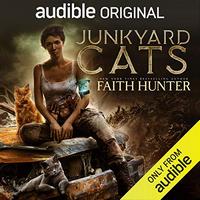 |
Junkyard Catsby Faith Hunter, Khristine Hvam (Narrator) Audiobook, 5 hrs., 2 min. Read: January 3-6, 2020 |

Faith Hunter dips her toe into SF with this Audible Original, and leaves quite an impression. The distinctive Hutner-flair is there, with science-y stuff replacing the magic stuff. It works pretty well.
Shining Smith is a veteran, of a handful of things, really. This takes place in the near-future, following a World War and another one (called the Final War in an act of aspirational nomenclature, I assume). She lives in/runs a scrapyard left to her by her father with a few cats and another vet recovering from trauma.
Shining deals on both sides of the law through intermediaries—no one knows her or who she is beyond those. It’s a perfectly safe environment.
Not a nice one, not a fulfilling one, but a safe one. And in her world, that’s asking a lot.
Until one day, one of her intermediaries shows up at her scrapyard dead. And then a very strong suspect for killing him shows up. And things get worse from there.
The action scenes are cool—filled with all the kinds of things that the best SF action scenes are filled with. The future-tech is cool, completely foreign to reality, yet it seems like the kind of thing that would emerge from our current tech.
I liked Shining, we don’t get to know her much. She’s such the riddle, wrapped in a mystery, inside an enigma, that it’s hard to get a real handle on her—but we get enough to root for her and want to know her better. Her compatriots are intriguing—as well-rounded as characters can get in this limited space where everyone is lying to each other about who and what they are.
There were a couple of SF-brand/tech names (like The Tyrell Corporation or tricorder) that I really couldn’t understand what Hvam was saying. Against the spirit of an “Audible Original,” but I’d like to read this so I could get a handle on those things. Which isn’t saying that Hvam didn’t do a great job—as per usual, her narration is top-notch.
My only complaint (outside of the tech words I couldn’t decipher), is the brevity, we get the good story, but we don’t get any depth—it’s like it’s designed to make you want more. Hey, wait a second . . .
A fun action-packed story that’ll whet your appetite for more. This is a glimpse into a cool world and I love what Hunter has created here. Yeah, I’m only going with 3 Stars for this. There’s a lot of potential in this world and with these characters—if Hunter returns to this? I can easily see this becoming a favorite series. It’s fine as a stand-alone, and it doesn’t demand a series/sequel but I think to really appreciate everything she set-up here, we need a little more. I’m not sure that makes sense, but…it’s what I can do.

![]()



